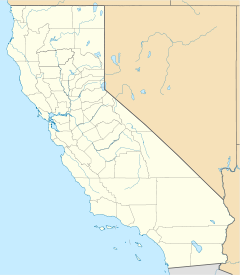Marine's Memorial Theatre
| Marines' Memorial Club | |
|---|---|

The Marines' Memorial Club and Hotel
|
|
|
Location within San Francisco
|
|
| Former names | Western Women's Club |
| General information | |
| Architectural style | Spanish Colonial-style |
| Address | 609 Sutter Street |
| Town or city | San Francisco, California |
| Coordinates | 37°47′20.05″N 122°24′37.69″W / 37.7889028°N 122.4104694°WCoordinates: 37°47′20.05″N 122°24′37.69″W / 37.7889028°N 122.4104694°W |
| Completed | 1926 |
| Owner | Marines Memorial Association |
| Technical details | |
| Floor count | 12 |
The Marines Memorial Club in San Francisco, California at 609 Sutter Street (at Mason), is a private social club for United States Marines and other veterans of the United States Armed Forces. The nonprofit Marines Memorial Association owns the large building in the Union Square neighborhood of San Francisco that houses a hotel, theater, restaurant/bar, sports club, special event facilities, library, museum, memorial, and a military history bookstore.
As a port city, San Francisco has since its founding by Spain been associated with military personnel, naval personnel, and merchant mariners. During World War II it was a point of embarkation for many sailors in the Pacific, who would keep fond memories of their few days in the city before leaving for the war.
The Marines Memorial was opened as a club for veterans of the Marines, although membership is open to all United States servicemen and servicewomen. Early in 1946, the Commandant of the Marine Corps, General Alexander A. Vandegrift, had proposed a "living memorial" to Marine casualties from the War in the Pacific. A group of Marines arranged to buy a building owned by a women's club at Mason Street and Sutter Street in San Francisco, whose members they had met through their participation in the wartime WAVES program. The club opened on November 10, 1946, the anniversary of the founding of the Marine Corps.
The theater predates the club, and was part of the original 1926 building. In its early days it hosted nationwide radio broadcasts by Bob Hope and Frank Sinatra. It later housed the San Francisco Actor's Workshop, which produced plays by Arthur Miller, Tennessee Williams, and Bertholt Brecht. It was also the first home of the American Conservatory Theater.
...
Wikipedia



